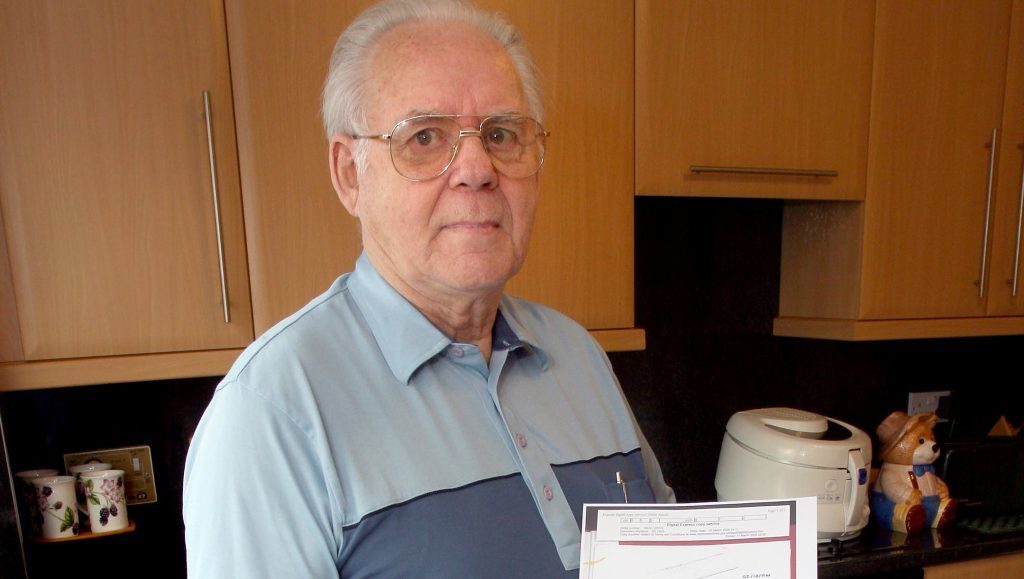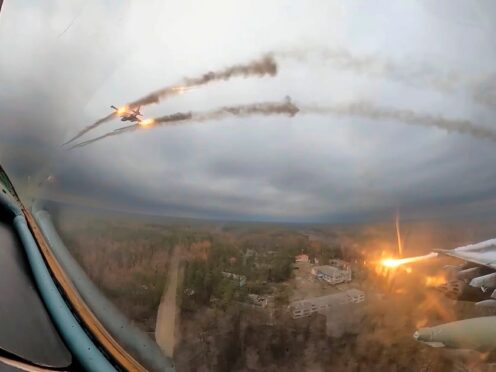A leading MSP has said it is an “absolute outrage” that a Fife nuclear test veteran has been banned from making any further Freedom of Information requests by the Ministry of Defence.
Hamilton SNP member Christina McKelvie, who is convener of the Scottish Parliament’s Equal Opportunities Committee, is writing to the UK Information Commissioner to determine whether the MoD has “overstepped the mark” by blocking further repeated requests by Kirkcaldy pensioner Dave Whyte.
As reported by The Courier a fortnight ago, 80-year-old Mr Whyte, who claimed he suffered sterility and genetic damage through radiation exposure during the British hydrogen and atomic bomb tests at Christmas Island in 1958, has made at least 150 Freedom of Information requests since 2008.
His questions have ranged from queries about the number of instruments, and their purpose, held in the bunker situated at ground zero for the detonation of both Pennant and Burgee atomic bombs he attended; to why did he have a lymph node removed from his body in the immediate aftermath and what were the results?
Mr Whyte, who says he was not supplied with any protective clothing or a respirator for these tasks just 2.5 hours after each bomb, has repeatedly accused the MoD of lying when they say they don’t have the information.
But in response to his latest FOI request which sought details about his role collecting radioactive debris scattered around ground zero, the MoD has taken a firm stand by accusing him of running a “relatively trivial, increasingly personalised” campaign, having “unreasonable persistence”, being “obsessive”, “aggressive”, and of displaying “paranoia” in his “vexatious” and duplicated requests.
It said the “greatest harassment” to staff was the sheer volume of repeat requests which created a “significant resource burden” with a “vastly disproportionate percentage of requests handled by finite staff resources”.
Ms McKelvie, who hosted a nuclear test veterans member’s debate in 2011, told The Courier, “It’s an absolute outrage that the MoD is trying to palm off nuclear veterans who have a legitimate and deeply personal interest in getting answers.
“We’re talking about individuals with heart-breaking and life-changing stories – men who have suffered infertility, skin cancers and other conditions through exposure to radiation in the course of doing their job and serving their country.
“While the MoD tries to obfuscate and dodge the questions it is simply not acceptable for them to impose an outright ban on people using legitimate freedom of information requests to get the answers they need to make their case.
“I’ll be writing to the Information Commissioner to determine whether the MoD have overstepped the mark on blocking repeated requests – and would be happy to help nuclear test veterans in trying to get the answers they need.”
A spokesperson for the MoD’s Defence Equipment and Support Policy Secretariat told Mr Whyte: “While I appreciate that this decision will undoubtedly be disappointing for you, it is simply not possible for the department to continue to devote such significant resources to continuing to respond to your requests.
“As a result we will not comply with this request, or any further requests under the FOI Act relating to the UK nuclear tests in the 1950s and 1960s.”
The MoD has previously said it is unable to discuss individual cases but says it recognises the “debt of gratitude” owed to servicemen and women who took part in the nuclear tests whilst helping to keep Britain secure at a difficult time in terms of nuclear technology.











